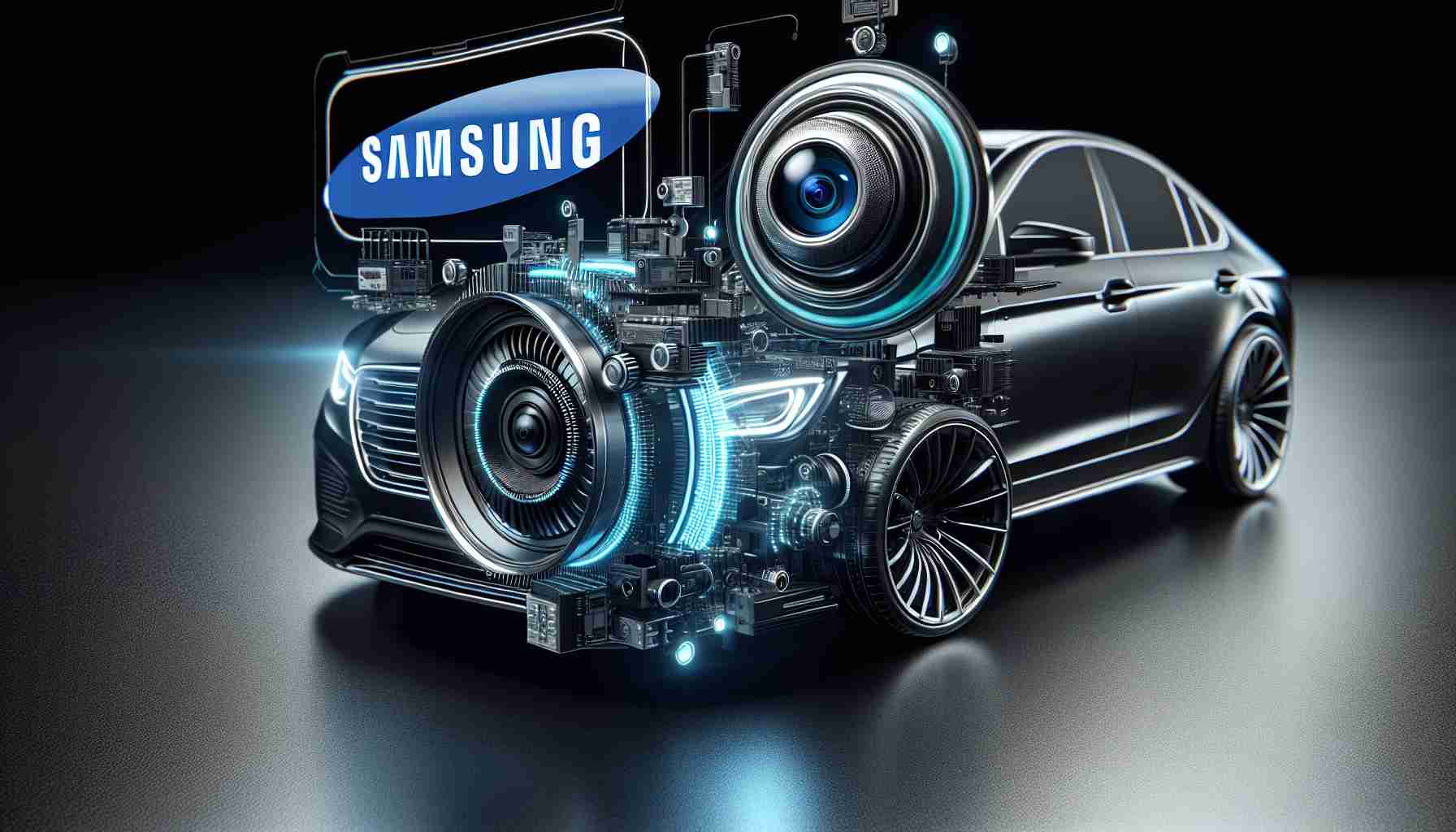Samsung Electro-Mechanics has announced its plans to commence mass production of “weatherproof” camera modules for cars this year. With a focus on enhancing image quality for automotive assistance features and the development of autonomous driving technology, Samsung aims to establish itself as a key player in the camera module industry.
Principal engineer at Samsung Electro-Mechanics, Kwak Hyung-chan, explained that accidents occur when camera sensors in cars malfunction, which has led to a growing demand for high-end cameras in the market. Unlike cameras for IT devices, automotive cameras are critical for safety. To address this need, Samsung has developed camera modules that are capable of withstanding extreme weather conditions, surpassing the specifications of existing products.
One of Samsung’s key innovations is the implementation of a water-repellent lens coating that significantly extends the lens lifespan. This coating maximizes the water-repellency angles, facilitating the easy removal of water droplets and providing 1.5 times stronger resistance to wear from dust, dirt, and scratches. Additionally, the new lens has a lifespan of more than six times that of current products.
To combat potential issues related to frost or snow during winter, Samsung has integrated lens heating technology into their modules. This technology ensures prompt melting within just one minute, outperforming rival products in terms of efficiency.
Furthermore, Samsung has developed a hybrid lens that combines the strengths of glass and plastic lenses, offering enhanced durability, resistance to temperature variations, and improved productivity compared to traditional lens materials.
In line with the increasing number of cameras installed in vehicles, Samsung anticipates a future where a minimum of 20 cameras will be adopted per car. To meet this demand, Samsung aims to continuously develop new technologies and explore new applications to expand the market.
Expanding beyond the automotive industry, Samsung also plans to tap into the robotics sector with its camera modules. Recognizing the need for “eyes” in both robotics and mobility industries, the company envisions widespread application of its advanced camera technology.
According to market tracker Consegic Business Intelligence, the automotive camera module market is expected to experience significant growth, reaching $8.5 billion by 2030 with an annual growth rate of 13.8 percent. With its cutting-edge technology and focus on meeting industry demands, Samsung Electro-Mechanics is well-positioned to capture a substantial share of this expanding market.
Samsung Electro-Mechanics’ decision to enter the “weatherproof” camera module market for cars reflects the company’s commitment to enhancing image quality for automotive assistance features and the development of autonomous driving technology. As accidents can occur when camera sensors malfunction, there is a growing demand for high-end cameras in the automotive market. Samsung aims to address this need by offering camera modules that surpass the specifications of existing products.
A key innovation by Samsung is the implementation of a water-repellent lens coating that extends the lens lifespan. This coating allows for easy removal of water droplets and provides stronger resistance to wear from dust, dirt, and scratches. The new lens has a lifespan of more than six times that of current products, ensuring longevity and reliability.
To combat winter conditions, Samsung has incorporated lens heating technology into their modules. This technology enables prompt melting within one minute, surpassing rival products in terms of efficiency. It ensures that camera modules can withstand frost or snow, providing clear vision and enhancing safety.
Furthermore, Samsung has developed a hybrid lens that combines the strengths of glass and plastic lenses. This innovation offers enhanced durability, resistance to temperature variations, and improved productivity compared to traditional lens materials.
With the increasing adoption of cameras in vehicles, Samsung foresees a future where a minimum of 20 cameras will be installed per car. To meet this demand, the company is committed to continuously developing new technologies and exploring new applications to expand the market.
In addition to the automotive industry, Samsung plans to enter the robotics sector with its camera modules. The company recognizes the need for advanced camera technology in both robotics and mobility industries, and aims to provide cutting-edge solutions.
According to market forecasts by Consegic Business Intelligence, the automotive camera module market is expected to reach $8.5 billion by 2030, with an annual growth rate of 13.8 percent. This indicates significant potential for growth in the industry. With its focus on meeting industry demands and its cutting-edge technology, Samsung Electro-Mechanics is well-positioned to capture a substantial share of this expanding market.
For more information on Samsung Electro-Mechanics and its camera modules, you can visit the Samsung Electro-Mechanics website.
The source of the article is from the blog exofeed.nl
